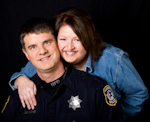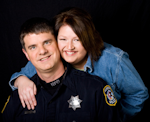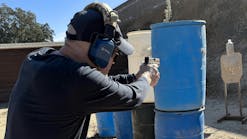“Don’t say you don’t have enough time. You have exactly the same number of hours per day that were given to Helen Keller, Pasteur, Michelangelo, Mother Teresa, Leonardo da Vinci, Thomas Jefferson, and Albert Einstein.”
–Life’s Little Instruction Book
Deciding to make a life change takes courage. Making the life change into a habit requires determination, steadfastness, and endurance because it takes time and there are many failures along the way. All of us have tried a new habit from quitting smoking, losing weight, exercising more, slowing down, being more positive, to ________ . Most of us can name New Year’s Resolutions we have tried and failed, and some of us have stopped making them altogether knowing they are abandoned and forgotten about 14-days later.
Many experts believe it takes only 21-days to create a new habit or break an existing behavior. In reality, it depends on the personality of the person, ability to adapt to change, and the complexity of desired outcome. Some habits such as developing a new exercise routine, quitting smoking, or eating healthy, can take up to six months or a year. According to Charles Duhigg, a New York Times business reporter and author of The Power of Habit: Why We Do What We Do in Life and Business, it takes time for the new behavior and change to become autonomic but each time you perform the habit “there’s a thickening of neural pathways. It’s more automatic the third time than the first, and even more automatic the 21st time. Every single time you do it, it gets easier and easier, and eventually you cross the line in the sand where it feels automatic and it’s an almost thoughtless activity.”
Adding vs. Restriction
Often patients tell me they want to begin losing weight. When I ask about their plan they tell me of new diet they are going to follow, generally something very radical that is the latest craze and offering the fastest results. It usually comes down to a plan to eradicate all the foods they love and eat often for raw vegetables and, if they are lucky, an occasional bland piece of chicken breast. What I first encourage patients to do is to begin adding 3 healthy choices into their daily routines; such as a piece of fruit, a Greek yogurt, and a bottle of water. It is easier for the brain to remain engaged in adding a new change than it is to begin restricting already developed routines and habits. Once one of the new foods becomes an autonomic habit then add a few more healthy choices. This way a person is building on successes versus seeing failure after failure, thus giving up before the goal is accomplished. Researchers are finding it is easier to add a new daily behavior than it is to restrict already developed habits.
Proper tools
Thanksgiving Day 2012 was our first run together and we had decided earlier in the month that we were going to make this a life habit. Before we took that first run, I knew we needed the right equipment to help us be successful so our first stop was into a local running store; they analyzed our stride and run, and then fitted us in the right shoes and made us customized orthotics. It was good chunk of change, but it was an investment in our success.
Since winter was just around the corner, we then bought clothing for the season to keep us warm, yet dry. This meant layers of wick-away clothing to pull sweat from the skin to the outside of the clothing where it dries immediately. Having the proper clothing from sports bra, to compression shorts, to running gloves would give us one less excuse for failure and also give us good memories of when the run is completed. No matter the habit one desires to implement, equipping yourself with the proper tools is a must.
Developing a Plan
Since we had tried and failed to become regular runners before we knew we needed to research a plan with proven success. After talking to experienced marathoners and using search engines we settled on the Active.com Couch to 5K App for our iPhones. The plan is brilliant in its simplicity, so going into it we felt confident since it required an initial commitment of just 3-times per week of 30 minutes each.
Social Support & Accountability
Mike & I started this life change together, but little did we know Mike was going to be injured in the line of duty the following Saturday. The injury was to both legs and prohibited him from running through most of his rehabilitation. I knew I needed to keep going. I knew I also needed friends cheering me on; I turned to Facebook, Twitter, and Active.com message boards. I posted my runs with the GPS map within minutes of finishing my run. I was also very vocal about my frustrations, physical pain, and roadblocks. Throughout I had seasoned runners – most of whom I’d been privileged to meet through the police writing and training world - such as Bruce Sokolove, John Bostain, Laura Scarry, Betsy Smith and many others giving me advice and turning me towards the right resources. Coach Sok taught me the value of reading articles and educating myself on running. John and Laura taught me the need for mantras to fight through the physical pain and to learn endurance. Betsy was my biggest cheerleader.
I also used an App called MapMyRun where I have friends who run. Each time we log a workout our phone will whistle. We get to check each other’s progress and make comments about what the other did. I also know they see when I haven’t been exercising as much as I should, and this motivates me to get out again.
Another way I added accountability was by talking to everyone about becoming a runner. I told my coworkers, some of my patients who race, and my friends. By being so open about my hardships and successes my social network continues to grow as many of my friends have started running, too, and come to me for advice & support. Being vocal has been one of the biggest forms of accountability.
Goal Setting
I finished Couch to 5K back in March. It took me longer than expected because life happens and I have learned few things in my life ever go according to my plan. But when I needed to stop, I knew the importance of getting back on track and one way I did this was by having goals set. Three weeks into my new life as a runner, I scheduled my first 5K with Mike and my friend Dawn, who had also never done a 5K before, for the month of April. Being a NEWBIE I knew I had to continue training to meet my goal. Failure (and embarrassment) was not an option! Each of us has completed three 5K’s this year, with more on the horizon.
I continue to set goals and continue to reach them. Some are long-term and others more immediate. Using both gives me motivation. I still schedule 5K’s because I’m afraid if I don’t, even though I now yearn for my runs, I know how easy it is for a good habit to fade away, almost overnight. I know I need to feed the motivation and be intentional; never taking for granted it will always be there. I know this is going to be work for the rest of my life. I am also working towards the goal of being able to run a 10K with ease (I’ve done it once already, but it wasn’t close to being easy!) on a trail by my house. Setting goals gives motivation and focus so make sure goals are periodically reevaluated and upgraded.
Milestones
Celebrate the milestones! Whether it’s losing the first 5 lbs, are down to ½ a pack a day, have gotten a promotion, or have run for the first time for 3 full minutes without stopping…..Celebrate! Reward yourself for your hard work. Accomplishments need to be recognized and remembered.
Developing life habits requires hard work, effort, and intentionality. Start with a plan that encourages you to build on your successes and be wary of plans that require overwhelming life changes and restrictions. Be public with friends and family about your frustrations and your successes and build a network of accountability. Continuously set goals and remember to celebrate your successes. This formula is imperative to making a goal into a life-long habit.

Michael Wasilewski
Althea Olson, LCSW and Mike Wasilewski, MSW have been married since 1994. Mike works full-time as a police officer for a large suburban Chicago agency while Althea is a social worker in private practice in Joliet & Naperville, IL. They have been popular contributors of Officer.com since 2007 writing on a wide range of topics to include officer wellness, relationships, mental health, morale, and ethics. Their writing led to them developing More Than A Cop, and traveling the country as trainers teaching “survival skills off the street.” They can be contacted at [email protected] and can be followed on Facebook or Twitter at More Than A Cop, or check out their website www.MoreThanACop.com.

Althea Olson
Althea Olson, LCSW and Mike Wasilewski, MSW have been married since 1994. Mike works full-time as a police officer for a large suburban Chicago agency while Althea is a social worker in private practice in Joliet & Naperville, IL. They have been popular contributors of Officer.com since 2007 writing on a wide range of topics to include officer wellness, relationships, mental health, morale, and ethics. Their writing led to them developing More Than A Cop, and traveling the country as trainers teaching “survival skills off the street.” They can be contacted at [email protected] and can be followed on Facebook or Twitter at More Than A Cop, or check out their website www.MoreThanACop.com.


